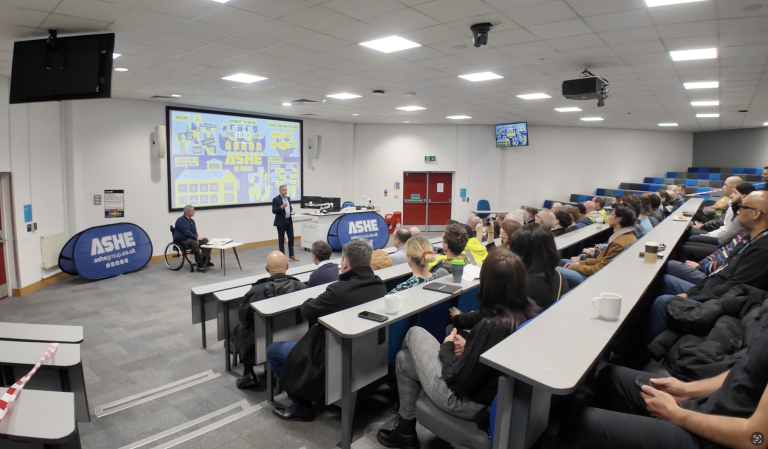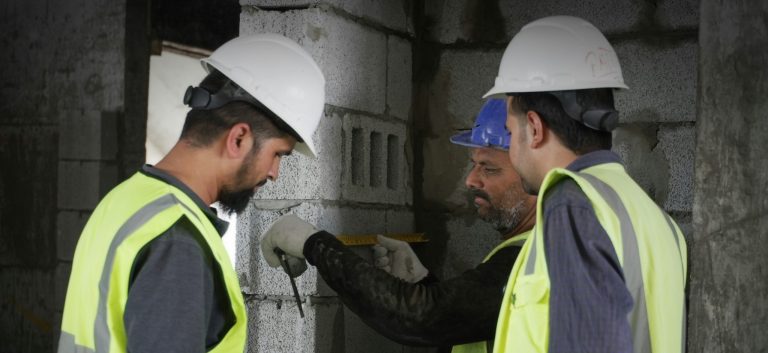Local people in the communities around SEGRO Logistics Park Radlett are set to benefit from investment in careers advice, employability training and wellbeing support as part of a newly launched Community Investment Plan by SEGRO, the developer of the former Radlett Aerodrome site The plan was developed in partnership with seven community and education partners – Communities 1st, Emmaus, Mind in Herts, St Albans Foodbank, Citizens Advice Bureau, Oaklands College and SmallPeice Trust – to improve social inclusion and community wellbeing. The Community Investment Plan, which will be funded by SEGRO and supported by its suppliers and future customers, aims to achieve the following outcomes by the end of 2028: 1,000 students, including young people from local schools such as Batchwood and Links Academy, will benefit from a coordinated programme of careers advice, STEM and skills-based initiatives. SEGRO and its partners will help inspire young people to pursue rewarding careers in construction and logistics through career workshops, specialist insights and site visits. 300 local unemployed people supported through targeted employment and skills services. Working alongside local community partners, the programme will include volunteering opportunities, as well as helping participants build confidence, enhance digital skills and access routes into long-term, sustainable work. SEGRO is also funding a new CSCS (Construction Skills Certification Scheme) training centre at Oaklands College that will enable 650 construction learners and 120 adults seeking a job in the sector to prove they have the necessary training, qualifications and competence to work on a site. More than 300 residents will benefit from initiatives promoting physical and mental wellbeing, including expanded access to health and counselling services, nutrition and lifestyle workshops, and targeted support for those experiencing homelessness or food insecurity. Neil Impiazzi, Partnership Development Director, at SEGRO, said: “Through the Community Investment Plan, we want to create a lasting, positive change by supporting local people into employment, inspiring young people about careers in construction and logistics, and improving wellbeing across the community living area around SEGRO Logistics Park Radlett. “We know from our conversations with community partners there is increasing demand for their services from vulnerable members of the local community, and we’re happy to work in partnership to ensure we are benefitting residents that really need our support.” The Community Investment Plan covering the St Albans area forms part of SEGRO’s broader commitment to Invest in local communities and environments, boosting skills, training and employment, in the communities where it operates across the UK and Continental Europe. It builds on a series of pilot initiatives launched in 2024, including careers workshops and site visits for local students, as well as funding for educational equipment at Batchwood School and Links Academy. The success of the Community Investment Plan relies on collaboration, and the community partners are central to delivering programmes and initiatives that will have meaningful positive impact. Stephen Craker, Chief Executive, Communities 1st, said: “Our aim is to strengthen opportunities for people in the south of the district. SEGRO’s Community Investment Plan will enable the St Albans Community Partnership to extend practical help for those who will benefit from tailored training, structured pathways into work and wider wellbeing support. It will reinforce existing community networks and help create long-term prospects for local residents.” Chloe Hawkins, Director of Adult & Work Based Training, Oaklands College, said: “We’re delighted to partner with SEGRO on this initiative which will directly support our construction students and adult learners in a sector which is important to both our organisations. The new CSCS training centre it will fund will give more local people access to the essential qualifications they need to work safely and confidently on site, helping them take the next step in their careers and supporting the wider construction sector across our community.” SEGRO Logistics Park Radlett will deliver 335,000 sq m of state-of-the-art, sustainable logistics space, enabled by a Strategic Rail Freight Interchange on site, set within in 600 acres of managed woodland, conservation grazing and public country park. Building, Design & Construction Magazine | The Choice of Industry Professionals














